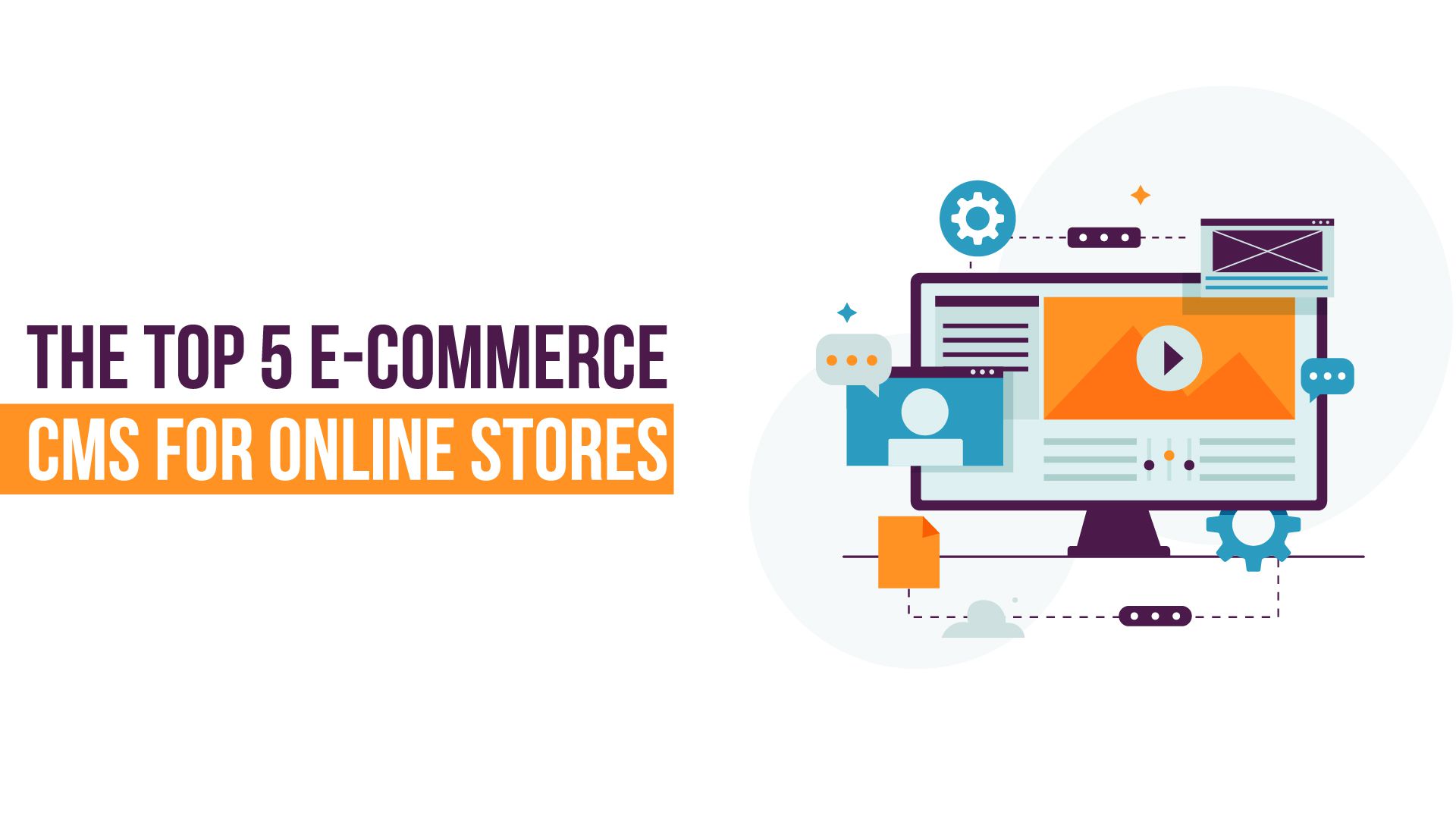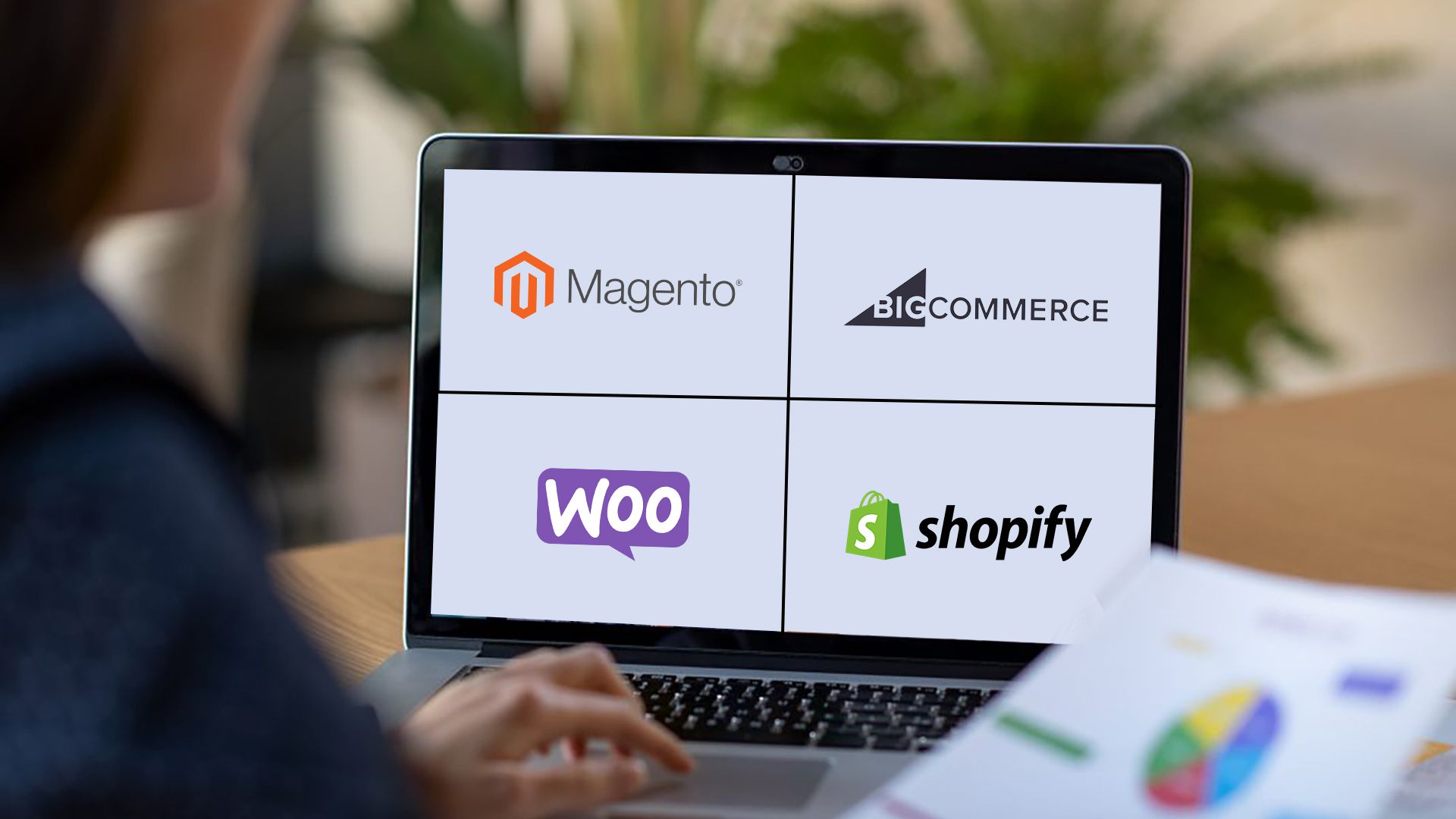
E-commerce is an ever-growing market as more and more individuals are shifting towards the online shopping trend. If you want to start your own business, choosing an e-commerce platform can be a daunting task as multiple vendors claim that their platform is more reliable than others.
So, how do you choose the best one?
Do you know that minor differences in e-commerce software features can influence your business?
This is why today, we will be comparing some of the best e-commerce platforms to help you select the most suitable option that fits your business requirements.

With a whopping 22% market share among sites using e-commerce technologies, it would not be incorrect to say that WooCommerce dominates the scene. This major e-commerce platform is built on WordPress and offers extensions for almost everything. It can transform any WordPress site into an e-commerce platform.
Without having to code anything, you can personalize your site however you like with these extensions. With Product Add-Ons, you can even add checkboxes, dropdowns, and sample images from the backend, so that end-users can experience your product at a personal level. It is integrated with multiple platforms like PayPal, Amazon Pay, Apple Pay, Google Pay, etc. to ease the payment process. It also integrates with social media platforms which allows you to generate more sales.
It is free to use and offers multiple themes and extensions without any cost. The most notable feature of WooCommerce is its 1-click selling. So, if you are familiar with WordPress, WooCommerce is the best choice.
BigCommerce is considered the best “full-featured” e-commerce platform available in the market today. Its powerful product search engine makes it an ideal choice for both, large retail brands as well as small businesses. Its features make it suitable for any niche and industry.
Let’s delve deeper by examining its features.
Its centralized inventory allows you to manage sales across any channel seamlessly and Its integration with major payment platforms like PayPal and Stripe makes the whole payment process easy and secure. The platform’s native blog CMS allows you to publish blogs to generate more traffic and it comes with built-in SEO tools.
This platform also offers third-party and advanced shipping options and a shipping manager which provides real-time quotes to customers. It also integrates with Amazon. Pinterest, Facebook, etc to generate more sales.
You can comprehend the reliability of this “one-stop-shop” platform as famous brands such as Toyota, Natori, and Martha Stewart have been using it for years. Its store has multiple advanced and buyer-centric templates, but only seven themes are currently free to use. The basic plan costs about $29 a month, ideal for small stores.
It would not be wrong to say that Shopify is a crowd favorite. This platform is an ideal choice for those who want to start a dropshipping business. This is the best-selling platform for small businesses. It’s also an ideal platform for website development for beginners, and its drag and drop interface allows for an easy setup process. According to Shopify’s report, their platform is used by over 800,000 businesses.
Looking at its features, just like WooCommerce’s extensions, Shopify also has unlimited apps. Customers can bookmark their favorite product with its Wishlist Plus app, and you can also personalize your store with other available apps.
The platform also has an unlimited collection of professional themes, but only ten are free; others cost around $100-$180. Shopify lets users personalize their layouts with smooth navigation helping customers locate products easily.
Its shopping cart comes with many functions, for example allowing users to create a payment from 100 different gateways; flexible shipping rates, availability in 50+ languages for International users, and other features make the platform even more user-friendly.
Just like BigCommerce, Shopify also features a blogging platform. One notable thing about Shopify is that they charge a transactional fee if you are not using their payments.
Magento is another widely used CMS platform. It is considered the best and most reliable open-source e-commerce platform. It’s built on PHP and allows business owners to set up everything with considerable ease. Coding is an essential part of this platform, and owners who can afford developers should use this opportunity to customize their site.
Magento’s community has more than 300,000 developers willing to work on your store. You can also increase the functionality of your website with extensions and themes. Magento’s modern drag and drop tools allow you to create customized content. You can move the elements to create different layouts with its grid system.
It is very easy to create and preview content and gives a personalized shopping experience for the customers. It also supports multi-channel marketing and allows you to manage data from multiple sources.
Customers know Magento for its reliability, and famous brands like Nike, Procter & Gamble, and Cisco trust Magento. It is mostly free but can be expensive for large businesses. If we examine available features, for example how it is readily available on the cloud, fast speed, and automatic trigger-based email campaigns features, then the price is worth it.
The last e-commerce CMS on our list is Squarespace, but it does not mean it resides on the lowest rung of the ladder. Squarespace, founded in 2003, has evolved from a traditional website builder to a competent CMS for e-commerce in recent years. It is the second most used e-commerce platform considering its 17.69% market share. If you are not looking for additional features, then this should be the right choice for you.
Let’s take a closer look at what it has to offer.
The platform features sleek templates and has an affordable price of $18/month with a 3% transaction fee. You can escape the transaction fee if you subscribe to $26 or $40 plans. The top plan includes the option for selling gift cards and subscriptions, discounts, and most importantly it allows you to get abandoned cart auto recovery.
It also allows you to filter your searches with topic names. Its interface is easy to use and gives you complete control over the arrangement of products. Its “quick product review” feature allows customers to zoom in on the product details without visiting the product page. With the auto-scheduling feature, users can schedule their content ahead of time.
The platform also allows social selling like the option for other platforms and integrates with Facebook, Twitter, Instagram, and Pinterest. Users can also leave reviews directly synced from Facebook. It also integrates with ShipStation and allows the installation of Printul and ShipBob.
Squarespace also generates a notification if your inventory is low and an inventory API that syncs with other e-commerce platforms. It also gives the real-time calculation of shipping rates from major providers like UPS, FedEx, and USPS. It is integrated with PayPal and Stripe for payment gateways.
With Squarespace, you can also insert any product from a catalog in a blog post or email.
Creating a website for your business while not having basic know-how about coding skills can be a little intimidating for most users. E-commerce CMS platforms have made everything so much easier and convenient. You can personalize your store with these platforms to your heart’s content.
From the numerous e-commerce platforms being offered in the market nowadays, we have selected some of the best available options. We hope that this list will prove to be helpful and serve as a guide in making your choice.
276 Fifth Ave Ste 704 PMB 140 New York, NY 10001
info@thepalettedigital.com
+1 (877) 893-3670
We Would Be Happy To Answer Your Queries.
